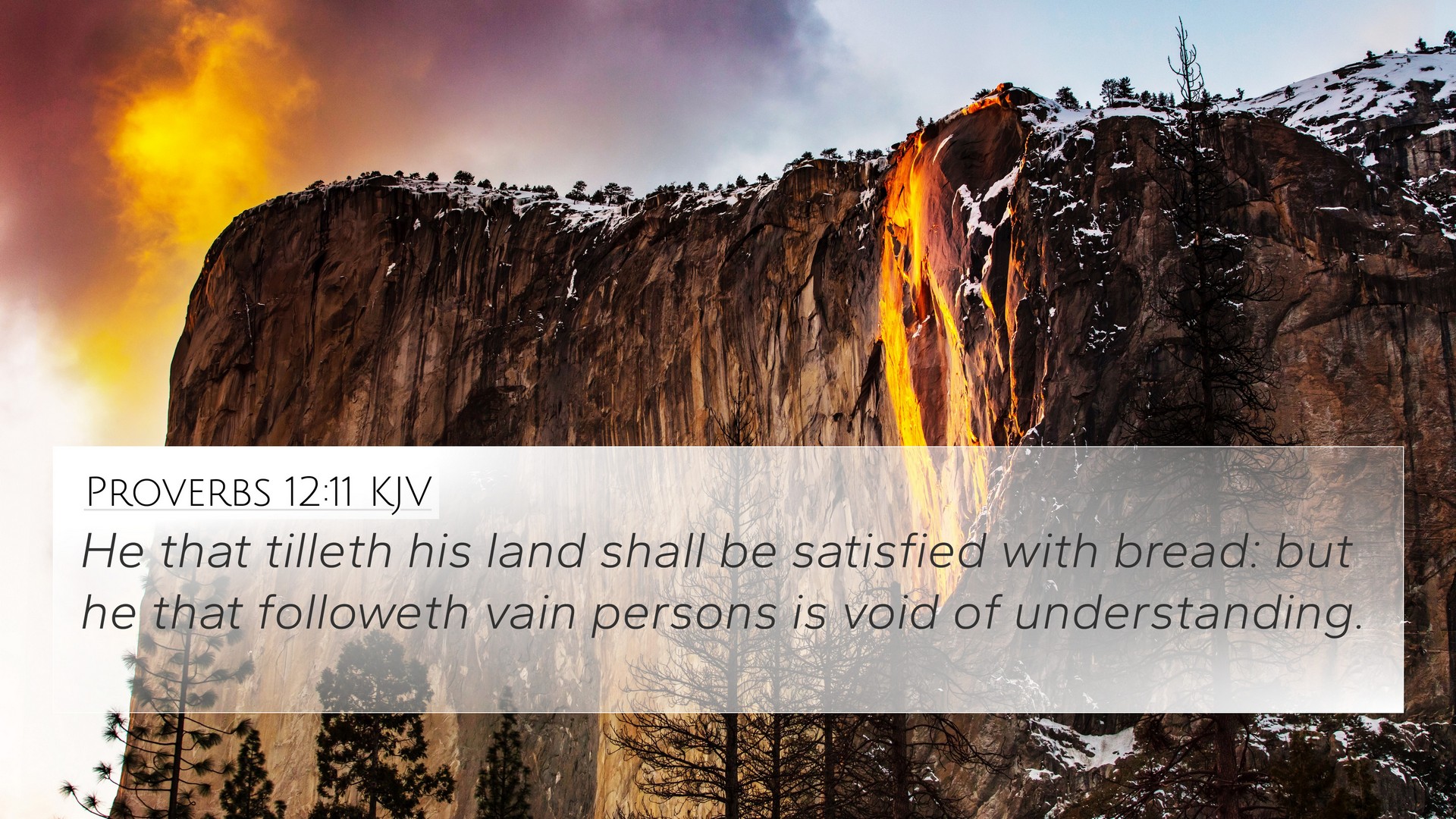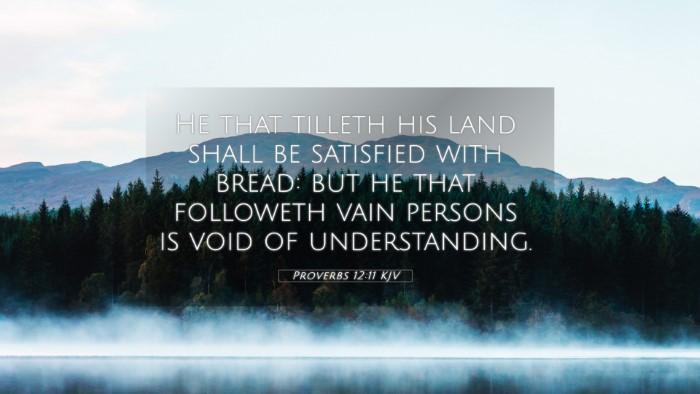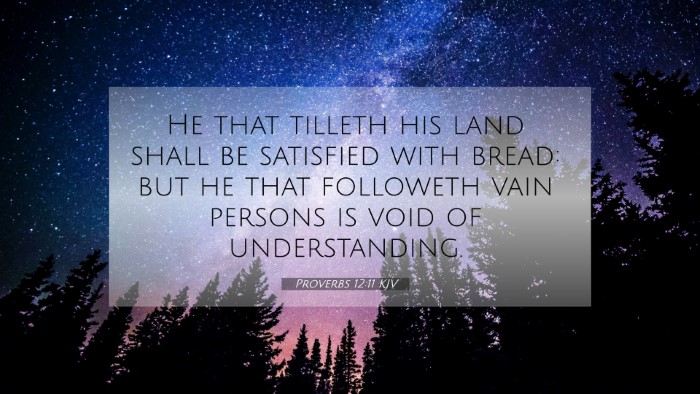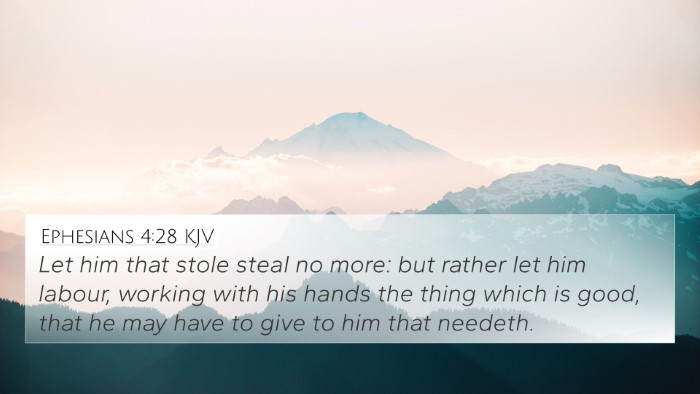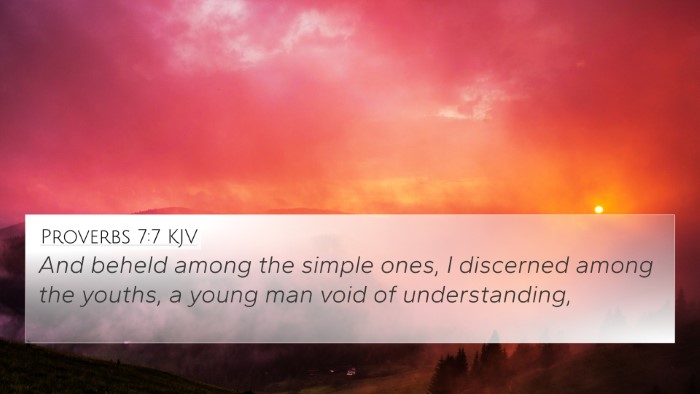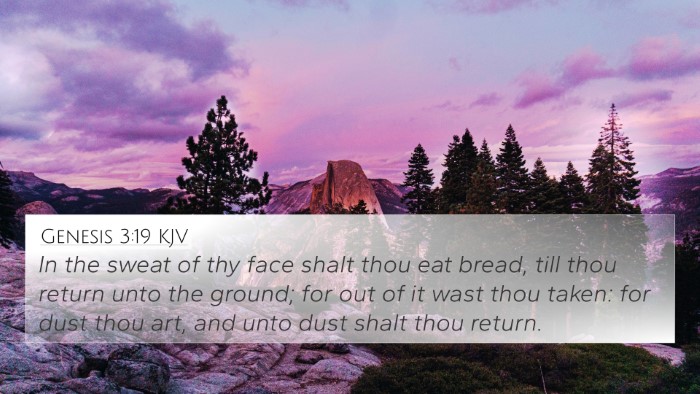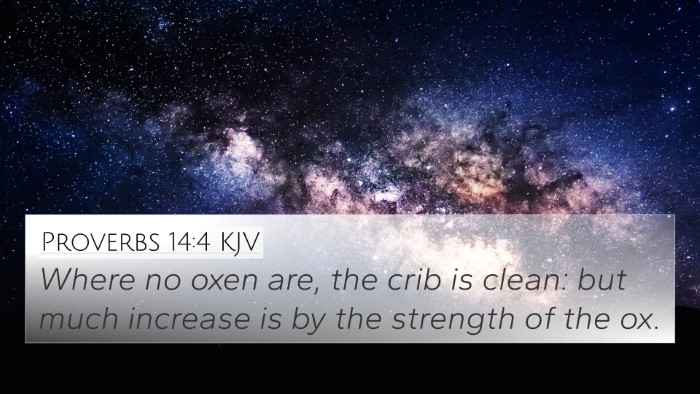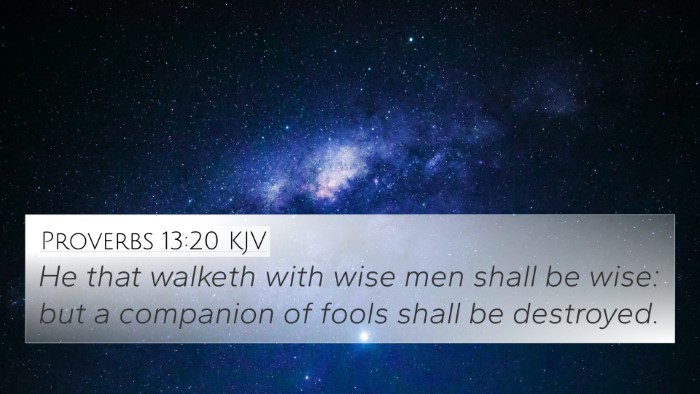Understanding Proverbs 12:11
Bible Verse: Proverbs 12:11 states, "He who tills his land will have plenty of bread, but he who follows frivolity is devoid of understanding."
Summary of Meaning
This verse emphasizes the value of hard work and the contrast between diligence and idleness. It suggests that those who engage earnestly in their responsibilities will reap the rewards, while those who are distracted by trivial pursuits lack wisdom.
Commentary Insights
-
Matthew Henry: Henry points out that the diligent farmer will not only provide for himself but also for others. He contrasts the virtuous toil of the worker with the empty pursuits of those who neglect their responsibilities.
-
Albert Barnes: Barnes notes that this wisdom literature serves as a practical reminder that genuine prosperity comes from labor. He explains that those who invest their time wisely will find abundance, whereas those who waste it on meaningless activities will face lack and confusion.
-
Adam Clarke: Clarke emphasizes the deeper understanding of wisdom, associating ‘following frivolity’ with a lack of clear purpose. He elucidates that frivolous pursuits can lead one away from productive paths and ultimately hinder personal growth and satisfaction in life.
Bible Cross-References
This verse finds connections to several other scriptures that align with its themes of work and wisdom. Below are 10 relevant references:
- Proverbs 10:4: "Lazy hands make for poverty, but diligent hands bring wealth." - This verse complements the idea of hard work leading to abundance.
- Ecclesiastes 9:10: "Whatever your hand finds to do, do it with all your might." - Highlights the importance of putting full effort into one's tasks.
- Proverbs 14:23: "In all toil there is profit, but mere talk tends only to poverty." - Reinforces the lesson that action brings rewards, while idle chatter leads to lack.
- 1 Thessalonians 4:11: "And to aspire to live quietly, and to mind your own affairs, and to work with your hands." - Encourages personal responsibility and hard work.
- Proverbs 21:5: "The plans of the diligent lead surely to abundance, but everyone who is hasty comes only to poverty." - Emphasizes careful planning and diligent effort.
- Colossians 3:23: "Whatever you do, work heartily, as for the Lord and not for men." - A reminder that work should be done with purpose and dedication.
- Laziness and Wisdom (Proverbs 26:14): "As a door turns on its hinges, so does a sluggard on his bed." - Illustrates the folly of laziness and inaction.
- Proverbs 6:6: "Go to the ant, you sluggard; consider its ways and be wise." - Encourages observation of nature for lessons on hard work and planning.
- Galatians 6:7: "Do not be deceived: God is not mocked, for whatever one sows, that will he also reap." - A call to recognize the consequences of our actions.
- Proverbs 12:24: "The hand of the diligent will rule, while the slothful will be put to forced labor." - Reflects on the nature of rewards based on work ethic.
Applications of Proverbs 12:11
Understanding this verse can inform several aspects of personal and communal life:
- Work Ethic: It serves as a guide to foster a strong work ethic, encouraging individuals to engage fully in their tasks.
- Life Choices: Choosing responsibilities over distractions leads to fulfillment and prosperity.
- Long-Term Success: Emphasizes the importance of sowing diligently today to reap benefits in the future.
- Community Contribution: Each person's diligence contributes to the broader well-being of their community.
Conclusion
Proverbs 12:11 provides timeless wisdom regarding the value of hard work over frivolous pursuits. It encourages believers to apply diligence in their lives, affirming the biblical principle that one’s efforts directly influence the results they experience. The comparative Bible verse analysis further highlights the interconnected nature of wisdom literature, where multiple verses continue to affirm and reinforce each other’s messages.
Finding Cross-References in the Bible
Utilizing tools for Bible cross-referencing can enhance one’s study significantly. By identifying connections between Bible verses, individuals can explore thematic Bible verse connections, leading to deeper understanding and richer spiritual insights.
How to Use Bible Cross-References
When engaging in cross-reference Bible study, consider the following tips:
- Identify Themes: Look for overarching themes or messages in the verses.
- Use a Concordance: A Bible concordance can help locate related scripture passages.
- Group Scriptures: Cluster verses that share common themes for a comprehensive understanding.
Helpful Resources
There are numerous resources available for studying scripture and cross-references:
- Bible Cross-Reference Guide: These guides offer an organized way to explore connections across verses.
- Bible Reference Resources: Utilize online tools or study Bibles that provide commentary and cross-referencing systems.
